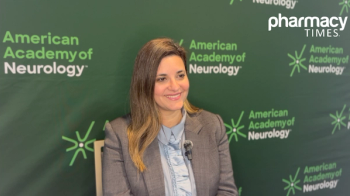
Kara Melmed, MD, emphasizes the critical importance of rapid, team-based intervention for intracerebral hemorrhage (ICH) patients, with pharmacists playing a key role in blood pressure management.

Kara Melmed, MD, emphasizes the critical importance of rapid, team-based intervention for intracerebral hemorrhage (ICH) patients, with pharmacists playing a key role in blood pressure management.

Pharmacists are essential navigators in the complex landscape of gene therapy.

Kayla Johnson, PharmD, BCPS, BCPP, highlights how integrating pharmacists into neurology clinics drives significant cost savings, high intervention acceptance rates, and improved care coordination.
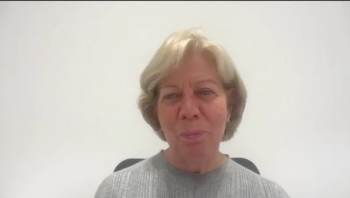
Enriqueta Felip, MD, PhD, discussed the benefits of subcutaneous pembrolizumab for patients with metastatic non–small cell lung cancer.

Stephanie Miller, PhD discusses how artificial intelligence can revolutionize medical research by assisting in drug development and potentially providing more targeted treatments across various diseases.

Scott Soefje, PharmD, MBA, BCOP, FCCP, FHOPA, offers insights for oncology pharmacists treating patients with metastatic esophageal squamous cell carcinoma.

Scott Soefje, PharmD, MBA, BCOP, FCCP, FHOPA, discusses a case study of a patient with metastatic esophageal squamous cell carcinoma.

Glucagon-like peptide-1 (GLP-1) analogs demonstrate potential to address multiple pathological processes in Alzheimer disease, with promising early research suggesting cognitive improvements and potential for future treatment.
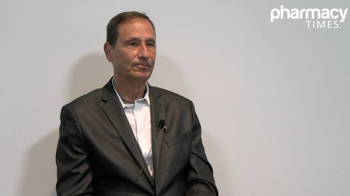
Andrew Charles, MD, outlines why calcitonin-gene-related peptide (CGRP) antagonists are increasingly favored as first-line migraine treatments and how pharmacists play a key role in patient education and support.
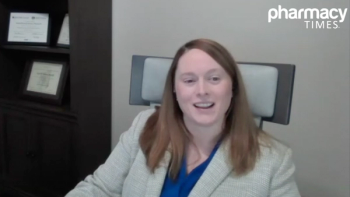
A study led by Kayla Johnson, PharmD, BCPS, BCPP found that integrating specialty pharmacists into non-multiple sclerosis (MS) neurology clinics led to significantly enhanced patient care and treatment outcomes.

Beth A. Malow, MD, MS, FAAN, said that pharmacists and health care professionals are at the frontlines of collaborating and raising awareness of climate change’s impacts.

Malow also emphasized the importance of staying educated on the potential neurological risks that may occur as a result of climate change.
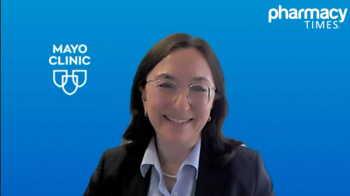
Nilufer Ertekin-Taner outlines how embracing the biological complexity of neurodegenerative diseases can guide the development of precision therapies akin to those used in oncology.

Panelists discuss how optimizing antibody-drug conjugate (ADC) therapy in patients with metastatic breast cancer (mBC) requires interdisciplinary care, including oncologists, pharmacists, and nurses. Adherence barriers such as cost, access, and insurance are addressed via financial and social support.

Panelists discuss how health care professionals use clear, tailored communication to explain antibody-drug conjugate (ADC) risks, benefits, and regimens. They provide education, address concerns, and ensure adherence through counseling and shared decision-making.

Nicolas Girard, MD, explains the benefits observed in the MARIPOSA clinical trial among patients with epidermal growth factor receptor (EGFR)-mutated non-small cell lung cancer (NSCLC) treated with amivantamab plus lazertinib.
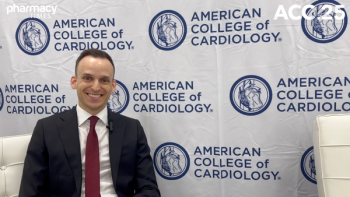
John Ostrominski, MD shares insights into the safety and efficacy of finerenone, based on data from the FINEARTS-HF trial.

Sarah Spinler, PharmD, FCCP, FAHA, FASHP, AACC, discussed management of atrial fibrillation in patients with cancer.

The Protecting Pharmacies in Medicaid Act aims to tackle spread pricing, but other legislation could target different issues.

Anna Sophie Mueller, MD discusses how imaging could advance risk identification in cardiovascular care.
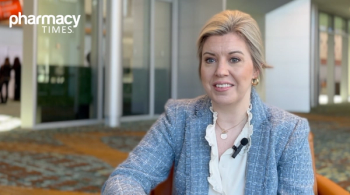
Expert shares insights on leadership resilience, emphasizing self-awareness, team development, and maintaining personal worth beyond professional achievements.
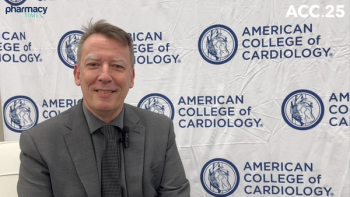
Marc Humbert, MD, PhD, shared data that were presented at the ACC 2025 Scientific Sessions.

Jawad Butt, MD, offers insight into his analysis of the FINEARTS-HF trial.
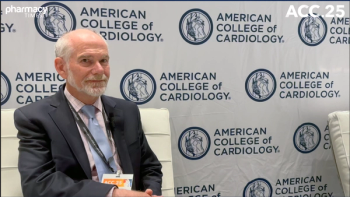
John Buse, MD, PhD discusses the expanding role of GLP-1 receptor agonists in treatment of cardiovascular conditions.
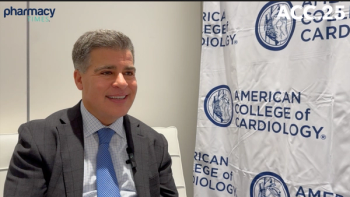
Christian Ruff, MD, highlights abelacimab’s potential to significantly reduce bleeding in patients with high-risk atrial fibrillation.
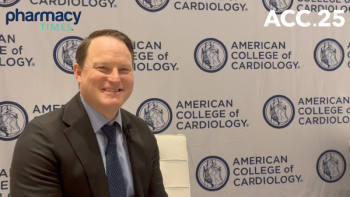
Marc Bonaca, MD, PHH, FACC discussed semaglutide’s potential benefits for non-diabetic patients with peripheral artery disease.

Kaite Krell, MPH, discusses the critical role of independent pharmacies and how proposed legislation could address challenges with PBMs.

Expert emphasized the importance of mentoring pharmacy students, supporting diverse career paths, and advocating for the profession.

Panelists discuss how digital health technologies revolutionize women’s health care through telehealth, mobile apps, and remote monitoring, expanding access, personalization, and proactive medical support.

Panelists discuss how health care professionals maintain expertise in menopause management through continuous learning via medical journals, professional networks, CME programs, digital resources, and tracking emerging research and therapeutic guidelines.